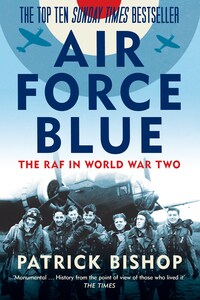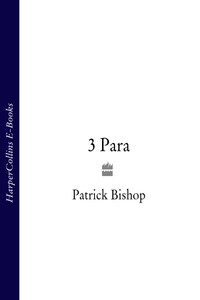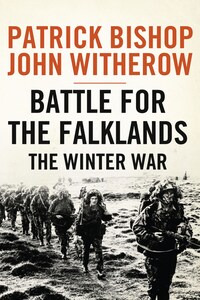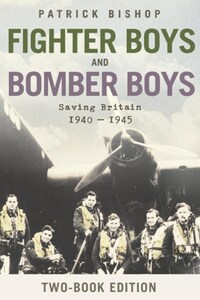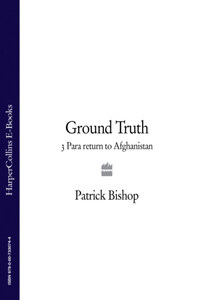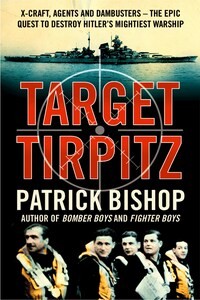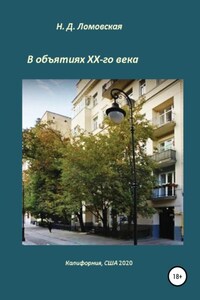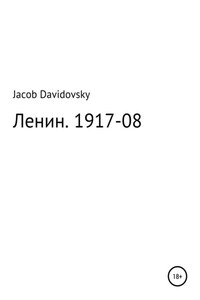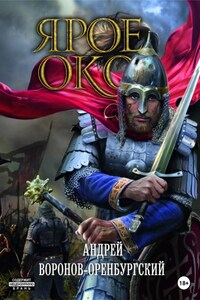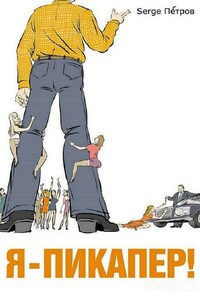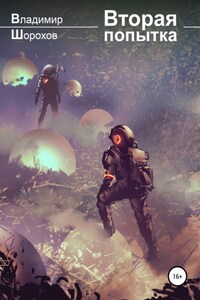HarperCollinsPublishers 77–85 Fulham Palace Road, Hammersmith, London W6 8JB
www.harpercollins.co.uk
First published in Great Britain by
HarperCollinsPublishers 2003
Copyright © Patrick Bishop 2003
Portrait © Max Arthur 2004
The Author asserts the moral right to be identified as the author of this work
A catalogue record for this book is available from the British Library
All rights reserved under International and Pan-American Copyright Conventions. By payment of the required fees, you have been granted the non-exclusive, non-transferable right to access and read the text of this e-book on screen. No part of this text may be reproduced, transmitted, downloaded, decompiled, reverse engineered, or stored in or introduced into any information storage and retrieval system, in any form or by any means, whether electronic or mechanical, now known or hereinafter invented, without the express written permission of HarperCollins e-books.
HarperCollinsPublishers has made every reasonable effort to ensure that any picture content and written content in this ebook has been included or removed in accordance with the contractual and technological constraints in operation at the time of publication.
Source ISBN: 9780006532040
Ebook Edition © NOVEMBER 2011 ISBN: 9780007381180 Version: 2014–09–11
This book is an attempt to answer a question that has fascinated me since I was a child. I grew up in Kent and London in the late 1950s and early 1960s, when the Second World War was still a real presence. There were daily reminders of it in the weed-choked gaps between houses where German bombs had fallen and the muddy Anderson shelters that could still be found in suburban back gardens.
My first years were spent in the village of Charing. One of my earliest memories is of walking with my father, mother and sister through a ground mist of bluebells in Long Beech woods on the ridge above the village, close to the Pilgrim’s Way. Not long before the skies overhead had been a battleground. Occasionally my playmates and I found cartridge cases rusting underneath the ferns that we imagined had tumbled from the heavens during the fighting. Later I learned that a fighter pilot had crashed in flames into Long Beech after being shot down in the autumn of 1940.
We boys knew all about the Battle of Britain from small, square comic books, describing the great events of the war, that we bought eagerly as soon as they appeared in the village newsagent. They were our first history books. There, for the first time, we met heroes other than our fathers. It was the fighter pilots who hijacked our imaginations. We acted out their deeds in our games and dreamed about being them when we grew up. Their style and dash made them much more glamorous than the earthbound drudges of the infantry. Adults seemed to think so too. The Battle of Britain was mythologised before it was even over and those who took part in it were bathed in the glow of the legend.
At adolescence you shed your old heroes and get a new set. For a while it was slightly embarrassing to recall the passion that the silhouette of a Hurricane or the smudged snapshot of a young pilot once provoked. The grown-ups also seemed to have moved on. This was the Sixties. Men in uniform were now the targets of mockery.
Then, in the funny way that the recent past becomes suddenly almost as remote as the Dark Ages, the pilots slipped into history. There were plenty of books about the battles they fought and their crucial importance to the twentieth century. But they themselves grew obscure, blurred and monochrome like the photographs they took of each other, always smiling, as they hung about at dispersal, waiting to take off.
In the pages that follow I have tried to colour in the picture and to answer the question: What were the Fighter Boys really like? My researches have been helped by the generosity of many people. I am particularly grateful to Malcolm Smith of the Battle of Britain Fighter Association for pointing me to the veterans whose reminiscences enrich this story and answering many queries with his celebrated kindness, good humour and patience. The survivors are men of their time. Everyone I approached was unfailingly courteous, helpful and hospitable. Meetings were invariably a pleasure. The Fighter Boys retain their

